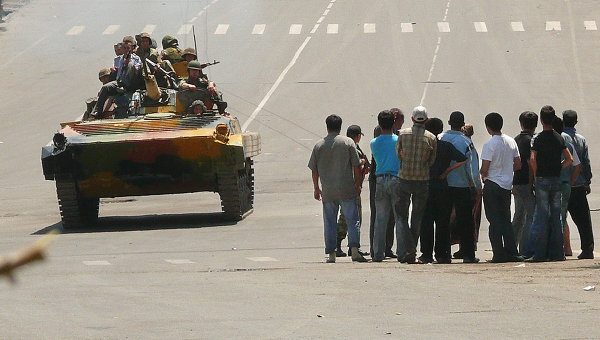First of all, a shout-out to the folks at registan.net, for doing everything well. Here is a great post on how sudden and unexpected the violence was for journalists and scholars of the region, as the region is known for for relative peace. Poverty, but peace. What is so interesting is that no one on the ground saw it coming, either. People were awakened in the middle of the night and truly could not believe this was happening.
As someone who studies the history of the region, the ethnic violence in southern Kyrgyzstan stands out as not being based in historical events. The only way I understand the violence is that Bakiyev’s ousting and consequent political vacuum led to violence. Ethnicity was just a smokescreen, a legitimate category for expressing violence. It is a category legitimized by ethnic violence elsewhere in the world and by those in the global media who point to it as a timeless factor. Unfortunately, this leaves no one obvious to blame.
My question is this- If all the governments in post-Soviet Central Asia run in basically the same way, why is Kyrgyzstan the least stable? Why no violence after Niyazov died? Why nothing in Tajikistan after the bloody civil war in the 1990’s?
(picture from neweurasia.net, an incredible resource for news in the region)
